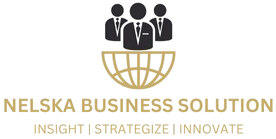Industry & Market Research
Industry and market research play a pivotal role in shaping business strategies, driving innovation, and ensuring competitiveness in today’s dynamic marketplace. From identifying emerging trends to understanding consumer behavior and assessing competitive landscapes, robust research practices empower organizations to make informed decisions. This comprehensive exploration delves into the intricacies of industry and market research, highlighting key strategies, emerging trends, and the broader implications for businesses across various sectors.

Understanding the Importance of Industry & Market Research:
Industry and market research serve as the foundation for strategic decision-making in businesses of all sizes. By gathering and analyzing relevant data, organizations gain insights into market dynamics, consumer preferences, and competitive landscapes. This information enables them to identify opportunities, anticipate challenges, and develop effective strategies to navigate complex market environments.
Key Components of Industry & Market Research:
Effective industry and market research encompass various components, including: Conducting thorough market analysis involves examining market size, growth trends, demographics, consumer behavior, and purchasing patterns. This helps businesses identify target markets, assess demand dynamics, and refine product/service offerings accordingly.
Competitive intelligence entails evaluating competitors’ strategies, strengths, weaknesses, and market positioning. By understanding competitor behavior and market dynamics, organizations can formulate competitive strategies, differentiate their offerings, and capitalize on market gaps. Understanding consumer preferences, needs, and behavior is essential for product development, marketing, and branding initiatives. Through surveys, focus groups, and data analytics, businesses can gather actionable insights to tailor their offerings and enhance customer satisfaction.
Monitoring industry trends, technological advancements, and regulatory changes allows businesses to anticipate shifts in consumer preferences and market dynamics. This proactive approach enables organizations to adapt quickly, seize opportunities, and stay ahead of the competition.
Strategies for Effective Industry & Market Research:
To maximize the value of industry and market research, organizations can adopt the following strategies: Clearly defining research objectives helps focus efforts and ensures that data collection and analysis align with organizational goals. Whether it’s exploring new markets, launching a new product, or assessing competitive threats, clarity in objectives is paramount.
Utilizing a combination of quantitative and qualitative research methods enhances the depth and accuracy of insights. From surveys and interviews to data mining and observational studies, employing diverse research techniques provides a holistic understanding of market dynamics.
With the proliferation of big data and advanced analytics tools, businesses can extract actionable insights from vast amounts of data. Machine learning algorithms, predictive analytics, and data visualization tools enable organizations to uncover hidden patterns, forecast trends, and make data-driven decisions. Markets evolve rapidly, necessitating agility and adaptability in research methodologies. Embracing iterative approaches, conducting frequent assessments, and incorporating feedback loops enable organizations to stay responsive to changing market dynamics and consumer preferences.
Emerging Trends in Industry & Market Research:
Several trends are reshaping the landscape of industry and market research, including: Artificial intelligence (AI) and machine learning algorithms are revolutionizing data analysis and predictive modeling. From sentiment analysis to demand forecasting, AI-powered tools enhance the speed, accuracy, and scalability of market research efforts.
Digital ethnography involves studying consumer behavior and interactions within online communities and social media platforms. By analyzing digital footprints and online conversations, businesses gain valuable insights into consumer preferences, sentiments, and brand perceptions.
The widespread adoption of smartphones has transformed how consumers engage with brands and access information. Mobile research methodologies, such as mobile surveys and in-app feedback mechanisms, enable organizations to capture real-time insights and reach diverse audiences.
Growing awareness of environmental sustainability and ethical considerations is influencing consumer purchasing decisions. Market research efforts increasingly focus on understanding consumer attitudes towards sustainability, eco-friendly products, and corporate social responsibility initiatives.
Informed by robust research insights, businesses can formulate strategic plans, allocate resources effectively, and mitigate risks proactively. This enables them to capitalize on opportunities and maintain a competitive edge in dynamic market environments.
By understanding market needs and consumer preferences, organizations can develop products and services that resonate with target audiences. Continuous research and innovation foster product differentiation, customer loyalty, and long-term growth.
Comprehensive market intelligence enables businesses to identify competitive threats, anticipate industry trends, and position themselves strategically in the marketplace. This allows them to defend market share, exploit emerging opportunities, and stay ahead of rivals.
Insights derived from market research inform personalized marketing strategies that resonate with target audiences. By tailoring messaging, channels, and promotions to specific consumer segments, businesses can enhance engagement, drive conversions, and build brand loyalty.
Industry and market research serve as indispensable tools for businesses seeking to navigate the complexities of modern markets. By embracing innovative research methodologies, leveraging technology, and staying attuned to emerging trends, organizations can gain a competitive edge, drive innovation, and forge meaningful connections with consumers. In an era defined by rapid change and uncertainty, the ability to harness actionable insights from industry and market research is key to sustaining growth and staying ahead in the ever-evolving business landscape.

